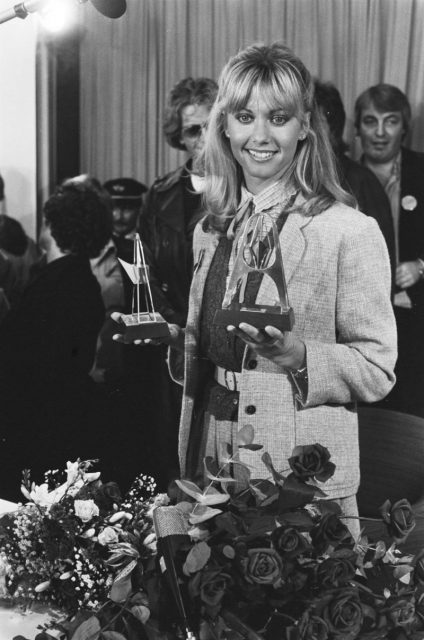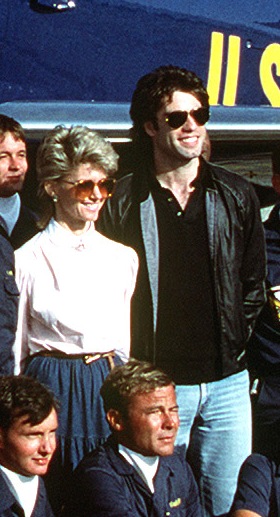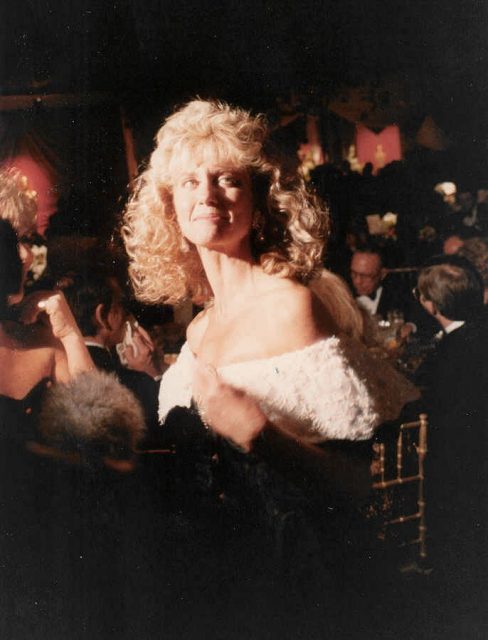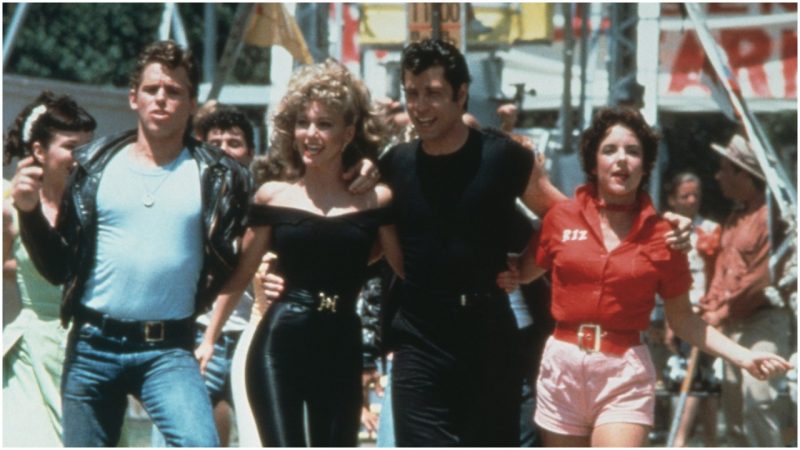In the movie Grease, most of the actors were too old to be in high school, but that was no obstacle to audiences falling in love with the story or enjoying the songs. The co-star of the wanna-be “bad guy” John Travolta was Olivia Newton-John, playing Sandy to his Danny. A light romance story set in the 1950s, Grease was a big-screen adaptation of the famed Broadway musical, and it earned some $400 million at the box office.
By 1978, the year Grease was released, Newton-John had already made a name for herself, collecting a couple of Grammy awards for her singles “I Honestly Love You” as well as “Have You Never Been Mellow.” Still, it was Grease that made her a big star and brought her international recognition. She had been a bit hesitant to accept the role as Sandy. Turning 29 at the time of the making of Grease, she had asked for a screen test with Travolta, who was six years her junior, just to be sure that the twosome had the chemistry.
The English-Australian actress might have harbored such doubts because of her earlier movies, one being Tomorrow in 1970. In an interview the following year, she remarked: “Our film died a death and it was all a bit of a shambles. But it was a good experience.” Unfortunately, Newton-John failed to repeat her success with Grease. Xanadu, which was released in 1980, was so bad that it supposedly even inspired the Golden Raspberry Awards, also called the Razzies.

Critics were fast to pan Xanadu. The film tried to fuse two trends that were very popular in those days, disco and roller skating, but it didn’t do it too well. The theatrical poster for the film showed Newtown-John in close-up, though the poster itself did not reveal much about the movie content. It has a weird opening, the say the least, as Newton-John appears to be one of nine mythical muses who somehow emerge from a mural. Her name is Kira, and in an encounter with Sonny Malone, a young artist played by Michael Beck, she dazzles him with a single kiss after after which she skates away. Sonny appears to be not the only guy to fancy Kira, as there is also Danny, played by Gene Kelly.
And while the cast was well-known and ad spending plentiful, the film bombed at the box office. “Unlike old-fashioned muses, Miss Newton-John does much of her work on roller skates, although the skating portions of the movie, like its musical numbers, have a desultory feeling,” was one review of the movie, penned by Janet Maslin of the New York Times in 1980.
“The music, performed by Miss Newton-John and the Electric Light Orchestra, is pretty without being peppy, and it doesn’t complement the action very effectively. Many of Miss Newton-John’s songs are offered as voiceovers while she skates, which minimizes their sparkle considerably,” reads the review.

Some people felt that the plot didn’t work, but the music was good. Newton-John’s performance of “Magic” brought her another Grammy nomination, while the entire soundtrack went double platinum in the U.S. Her role of Kira brought her, in contrast, a nomination for the Razzies. In fact, it seems to have been the inspiration for creating this satirical award ceremony.
It was on the Academy Awards Night in 1981 that John J.B. Wilson, soon to be one of the co-founders of the Golden Raspberry Awards, hosted a dinner party in his living room. That is when the first edition of his show took place, perhaps spontaneously. Wilson said later: “I set up a cardboard podium and invited people to offer up nominees for the worst film of the year.”
As the group at Wilson’s living room compiled a list of worst movies for the past year, Xanadu easily topped it. The first Razzie “statues” were reportedly sculpted out of foam, but Xanadu did not manage to claim one as worst film. Instead, it was Allan Carr’s Can’t Stop the Music that took it.

Ultimately, Olivia Newton-John also escaped winning the first Razzie for Worst Actress, the honor going to Brooke Shields for her role as Emmeline in The Blue Lagoon. Which might have come as a little bit of a disappointment for Wilson, who supposedly bid on Newton-John with enthusiasm. Nevertheless, Xanadu’s director Robert Greenwald was not spared from being called the Worst Director.
After Xanadu, Newton-John focused more on creating new music, and in 1981 she released her memorable hit “Let’s Get Physical.” In 1992, she was diagnosed with cancer, after which she devoted much of her time to raising awareness and fundraising for research. Her cancer returned in 2017, but at age 69 she is still holding strong and confident.
